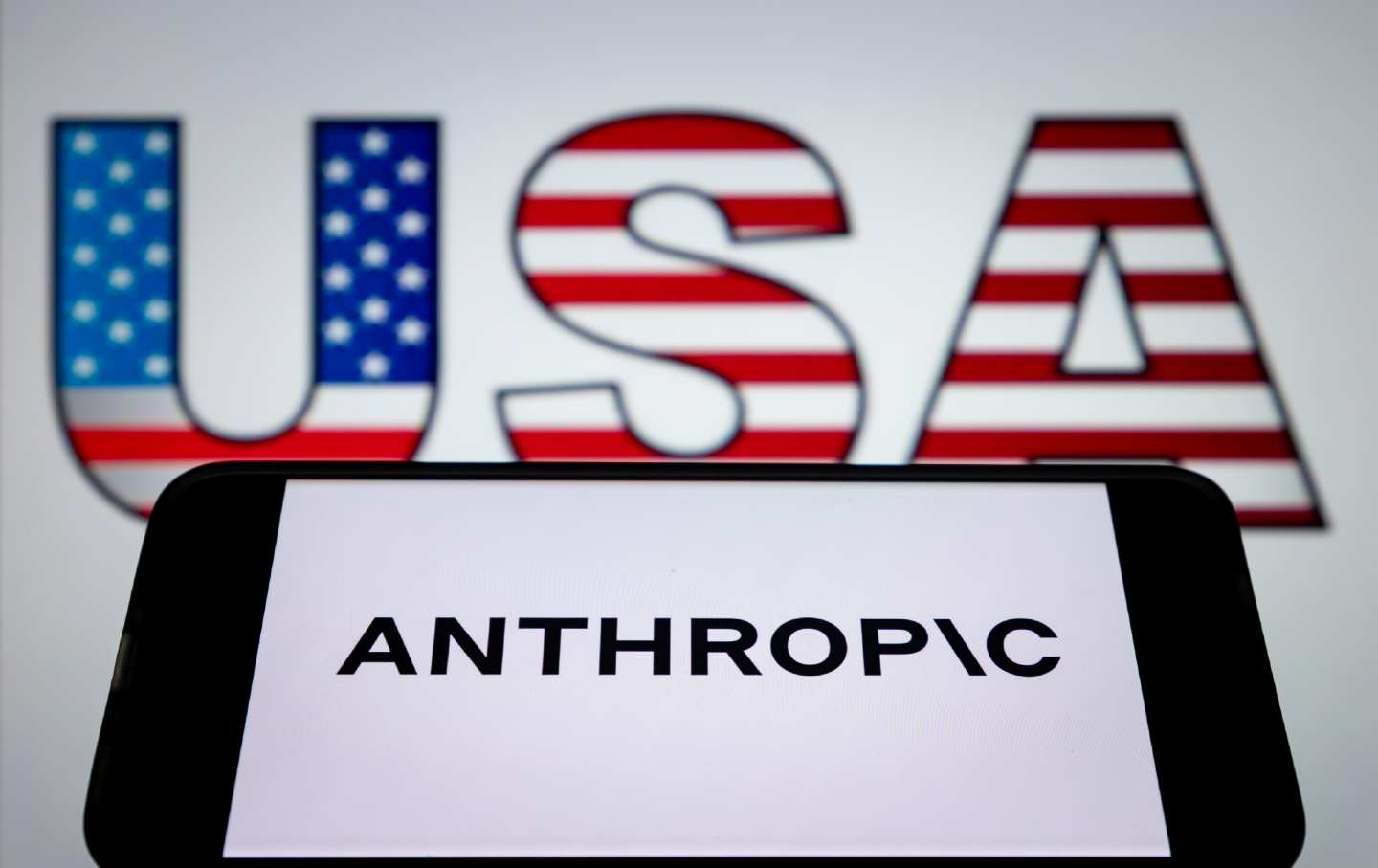Biden Should Channel His Inner FDR and Soak the Rich
Roosevelt welcomed the hatred of the plutocrats—and won a landslide. Biden should take note.

President Joe Biden during a bilateral meeting in the Oval Office on February 9, 2024.
(Michael Kappeler / Picture Alliance via Getty Images)As he prepared to seek a second presidential term in 1936, Franklin Delano Roosevelt introduced the Revenue Act of 1935, a plan to fund the New Deal by taxing the rich. The progressive tax plan came to be known as FDR’s “Wealth Tax,” because it went after up to 75 percent of the income of Americans who were making more than $1 million a year at a time when the great mass of Americans struggled to get by during the lingering Great Depression.
Millionaires and their apologists decried Roosevelt’s “Soak the Rich” strategy. But the president signed the measure into law and campaigned on it in 1936. That was the election during which FDR famously told a crowd at Madison Square Garden that, during his first term:
We had to struggle with the old enemies of peace—business and financial monopoly, speculation, reckless banking, class antagonism, sectionalism, war profiteering.
They had begun to consider the Government of the United States as a mere appendage to their own affairs. We know now that Government by organized money is just as dangerous as Government by organized mob.
Never before in all our history have these forces been so united against one candidate as they stand today. They are unanimous in their hate for me—and I welcome their hatred.
The millionaire class of his day did, indeed, hate FDR for his determination to tax them. But the voters loved the idea.
Three days after the “I welcome their hatred” address, Roosevelt was reelected with more than 60 percent of the popular vote and 98 percent of the Electoral College. He won every state in the nation except Maine and Vermont. The landslide secured not just a place in the record books but also an epic mandate to govern with the boldness that the moment demanded.
There were more factors in that sweeping victory than the wealth tax. But Roosevelt and his allies had no doubt that it helped to frame the message for an election that gave Democrats and left-wing Farmer-Laborites, Progressives, and independents who generally aligned with the president’s party more than three-quarters of the seats in the Senate and House.
Now, 88 years later, Joe Biden is running for reelection with a budget plan that includes his own “Wealth Tax.”
Under Biden’s proposed budget for Fiscal Year 2025, which was unveiled on Monday, billionaires would be required to pay at least 25 percent of their income in taxes because, as the White House puts it:
Billionaires make their money in ways that are often taxed at lower rates than ordinary wage income, or sometimes not taxed at all, thanks to giant loopholes and tax preferences that disproportionately benefit the wealthiest taxpayers. As a result, many of these wealthy Americans are able pay an average income tax rate of just 8 percent on their full incomes—a lower rate than many firefighters or teachers. To finally address this glaring inequity, the President’s Budget includes a 25 percent minimum tax on the wealthiest 0.01 percent, those with wealth of more than $100 million.
In addition, the Biden plan restores the top tax rate for the wealthiest Americans to 39.6 percent. When Republicans led by former President Donald Trump lowered that rate to 37 percent in 2017, they created a circumstance where, the White House explains, “This [Republican] rate cut alone is giving a couple with $2 million in annual taxable income a tax cut of more than $30,000 each year.”
Needless to say, the Biden plan, though more modest than Roosevelt’s, is likely to be unpopular with the billionaire class, and its GOP allies in the current Congress. House Speaker Mike Johnson (R-La.) has already dismissed Biden’s budget, which also includes plans to make billion-dollar corporations pay their fair share, as “a road map to accelerate America’s decline.”
So Biden won’t get to implement a “soak the rich” agenda before the election, as FDR did. But he’ll still get the hatred. And he should still embrace it.
Johnson and the rest of the House Republican leadership team announced Monday, “The price tag of President Biden’s proposed budget is yet another glaring reminder of this Administration’s insatiable appetite for reckless spending and the Democrats’ disregard for fiscal responsibility.”
As it turns out, Biden is the fiscally responsible candidate. His plan puts the tax burden where it belongs, raises needed revenue, and outlines an agenda for strengthening Social Security, Medicare, and Medicaid. Trump, on the other hand, responded on Monday to a CNBC question about Social Security and Medicare by saying, “There is a lot you can do in terms of entitlements in terms of cutting and in terms of also the theft and the bad management of entitlements, tremendous bad management of entitlements.”
A Business Insider report on the Republican former president’s statement began, “Donald Trump on Monday handed President Joe Biden a gift while calling in to CNBC.”
Biden accepted the gift gratefully, telling a New Hampshire crowd, “Even this morning, Donald Trump said cuts to Social Security and Medicare are on the table again. I’m never going to allow that to happen.”
So the battle lines are drawn, and Biden’s got the advantage, if he leans into it. He should channel his inner FDR, welcome the hatred of the billionaire class, laugh off Johnson’s feeble complaints, and unapologetically announce that, if he wins reelection and gets a Congress he can work with, he will tax, tax, tax the rich.
Popular
“swipe left below to view more authors”Swipe →There’s no risk and everything to gain politically. According to a Navigator Research poll from last month, 79 percent of registered voters favor higher taxes on billionaires and corporations. Only 16 percent are opposed. Democrats favor wealth taxes on billionaires by a 94-2 margin, independents by a 78-15 margin, Republicans by a 63-30 margin.
“Taxing the rich is extremely popular,” says Amy Hanauer, the executive director of the Institute on Taxation and Economic Policy. “It’s both good policy and good politics.”
FDR knew that. And so, it appears, does Joe Biden.
More from The Nation

How the Theatrics of Mamdani’s Trump Meeting Backfired How the Theatrics of Mamdani’s Trump Meeting Backfired
By pandering to the president’s vanity, the New York mayor reinforced Trump’s image as a strongman commanding deference—an especially bad look on the eve of Trump’s war with Iran

The Iran War Is Also a Climate War The Iran War Is Also a Climate War
Climate change is not a peripheral part of what we’re seeing in Iran—it’s structurally embedded in modern warfare.

The Cinema of Societal Collapse The Cinema of Societal Collapse
This year’s Oscar-nominated international feature films—especially The Secret Agent and Sirāt—tackle what it means to live and die under tyranny.

Students in New York Are Going Hungry. How Can Mamdani Help? Students in New York Are Going Hungry. How Can Mamdani Help?
With plans for city-owned grocery stores and a focus on affordability, the new mayoral administration offers fresh hopes of successfully confronting the food crisis among students...

Garbage In, Carnage Out Garbage In, Carnage Out
The harrowing lessons of the Pentagon’s recently dissolved partnership with Anthropic.

The Iran War Could Be Catastrophic for the US-Israel Alliance. Good. The Iran War Could Be Catastrophic for the US-Israel Alliance. Good.
As Israel’s role in pushing the war with Iran comes into ever sharper focus, it’s up to us to turn outrage into change.


